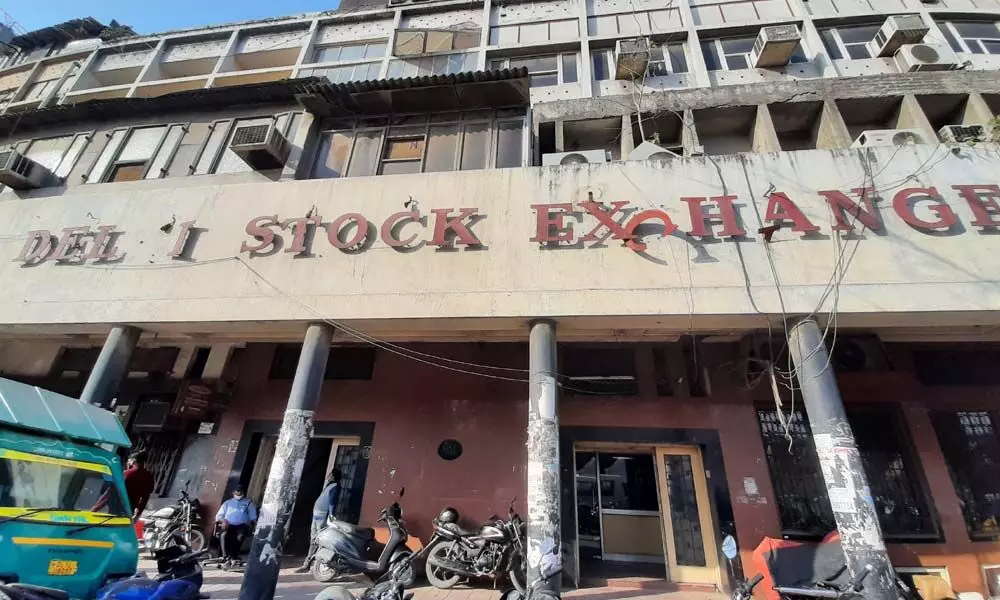DSE, once BSE rival, puts up assets for sale
On December 11, 2020, DSE issued a notification in the newspapers regarding the sale of its properties located at the very famous Asif Ali Road in the Old Delhi. Upon visiting the old DSE building, one can see the dilapidated condition of the premises, abandoned cubicles which once accommodated 379 stock brokers
image for illustrative purpose

Delhi Stock Exchange now in the process of clearing pending base material capital of 106 investors
New Delhi: An unimaginable scenario now, but the capital was once the centre of not only administration but also stock trading. One of the oldest stock exchanges in India, the Delhi Stock Exchange Estate Ltd (DSE), formerly known as Delhi Stock Exchange Association, is at present, wrapping up its operations and has initiated permanent closure of the activities and sale of the properties.
Trading took place at the DSE like any other stock exchanges in the country. Hundreds of brokers and sub-brokers used to begin the daily trading of securities or derivatives on the sound of the bell. The story of this stock exchange, however, is much forgotten now. The estate today is in the process of clearing the Base Material Capital of pending clients or investors of 106. This includes both brokers as individuals and from smaller companies. Recovery of the pending amount of Rs 16 crore has been particularly hard since the defaulters do not have the sufficient money to repay the dues.
On December 11, 2020, the DSE issued a notification in the newspapers regarding the sale of its properties (building) located at the very famous Asif Ali Road in the Old Delhi. Upon visiting the old DSE building, one can see the dilapidated condition of the premises, the abandoned cubicles which once accommodated 379 stock brokers.
DSE index recorded an all-time high of 1,183.98 on February 28, 2,000, beating the Bombay Stock Exchange (BSE) in terms of stock values. At the height of its operations, DSE Ltd had over 1,000 broker and sub-brokers who thronged the floor trading and subsequently online trading in 1996. The decade of 1990s, which was marred by events such as The Harshad Mehta scam (1992) and the Ketan Parekh scam (late 1998s) did not have a profound effect on the exchange. It was the central government's policy in 2003 which ultimately led to the downfall of the exchange.
In 2003, SEBI set up a committee under the chairmanship of Justice H Kania to recommend the process to be followed by the stock exchanges for demutualisation.
The committee's recommendations were approved by SEBI which in turn directed stock exchanges to submit their proposals for demutualisation. And thus, began the eventual closure of the stock trading here in Delhi.
The total numbers of companies listed on the DSE as 31st March 2003 were 3,854. Due to SEBI's de-lisitng guidelines which allow company's listed with BSE/NSE 2003 to get their shares delisted from the other stock exchange, only 8 companies were listed on the exchange and 397 companies were delisted.
Owing to issuance of these delisting guidelines by SEBI in February 2003, the request for delisting of companies went up which subsequently resulted in substantial reduction of listing fee revenue.
In 2008, SEBI derecognised the DSE. As per the clause 2.3 of the Exit Circular issued by SEBI, if any stock exchange fails to achieve a turnover of Rs 1,000 crore, it would be subjected to compulsory exit process. In 2017, SEBI issued Exit Oder to DSE.
DSE eventually stopped hiring any new employee from 2003 onwards and a voluntary retirement scheme was initiated for the employees. With over 200 employees in the year 2,000, DSE was left with merely 50-60 employees in 2003 and as of 2021, only seven employees are officially a part of the company, all engaged in the managerial tasks, clerical paperwork and security and the maintenance of the building. The value (in the form of FDs) of the estate which stood at Rs 100 crore in 2013, now stands at approximately Rs 75 crore.

